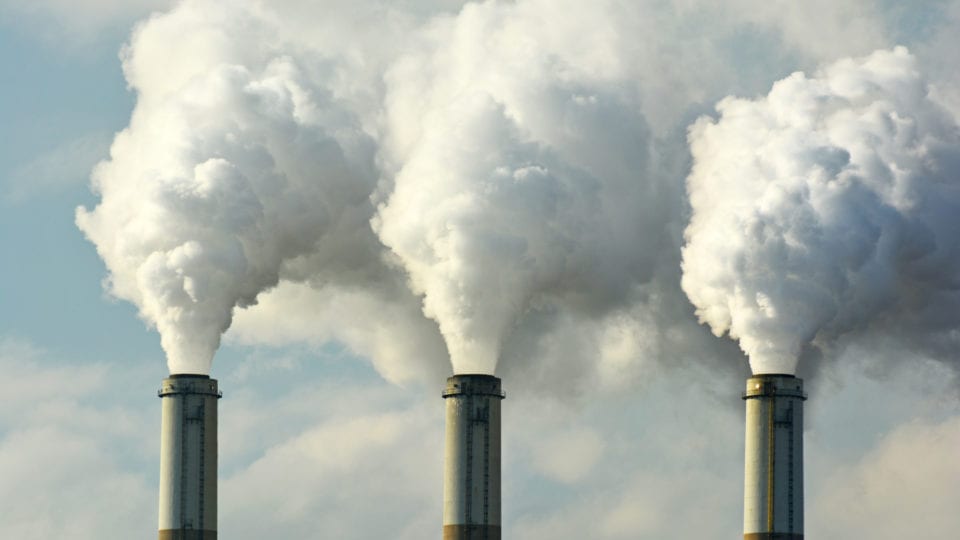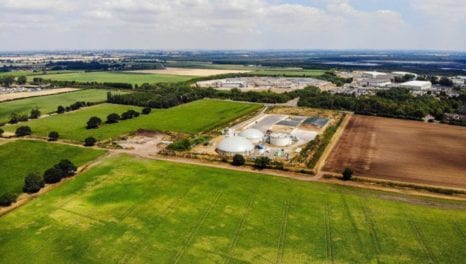Setting carbon standards key to achieving ‘net zero’ economy
Setting carbon standards for energy could unleash the innovation needed to achieve a 'net zero' economy, according to a new study by the Energy Systems Catapult.
21st June 2019 by Networks

Over the last 18 months, Energy Systems Catapult has been investigating how the UK can build a policy framework to reduce carbon emissions across the whole economy and deliver clean growth in a cost-effective way.
The Rethinking Decarbonisation Incentives (RDI) project found that incentives to invest in low carbon solutions are too low in several UK sectors, most notably heating.
The research found that currently a complex combination of taxes, subsidies, contracts and regulations, means the price paid by consumers and taxpayers varies by as much as £700 per tonne of carbon saved across different sectors of the UK economy.
However, experience around the world suggests that introducing an economy-wider carbon tax is “extremely challenging to implement”.
Instead, new sector-specific carbon standards could put the UK onto a net zero policy pathway, with a lower overall impact on energy prices. Carbon standards could be introduced alongside a system of tradeable credits, allowing energy companies more flexibility to innovate in meeting the standard.
The ESC has put forward five key recommendations:
1. Take opportunities to improve the current framework of policies by adjusting existing mechanisms (i.e. subsidies, taxes, etc.) to align emissions reduction incentives across the economy.
2. Consolidate and streamline existing measurement, monitoring, and verification of all emissions and related incentives.
3. Take immediate steps to progress a carbon policy driver for residential heat, including detailed design of an enduring framework of carbon standards.
4. Develop a pathway towards economy-wide policy framework covering all emitting activities, with a linked market for greenhouse gas removals.
5. Integrate carbon reduction into the measurement of economic productivity, potentially through the Industrial Strategy Council.
Head of markets, policy and regulation at Energy Systems Catapult, George Day, said: “Reaching net zero will require strong and coherent economic incentives to reduce emissions and spur innovation across all sectors of the economy, particularly in how we heat our buildings.
“International experience suggests that an economy-wide carbon tax or emissions trading scheme is extremely challenging to implement. But approaches based on tightening standards have a strong record of delivering cost-effective carbon reductions in many sectors and jurisdictions.
“New carbon standards on harder-to-tackle parts of the economy, like heating, could be set to tighten over time, creating an enduring market pull for the innovation needed to achieve net zero.
“We believe an economy-wide carbon policy framework – comprising a mix of market, pricing, and regulatory interventions – can bring forward investment and innovation to deliver clean growth. This will be vital for maintaining or enhancing UK economic competitiveness in a decarbonising world economy.”
Comments
Login on register to comment
Related content

Gas
Cadent backs launch of major bio-CNG HGV refuelling station
Gas network’s £250,000 infrastructure investment ensures supplies to existing connected customers have not been impacted

Gas
Editor’s blog: The biggest tests of resilience are yet to come
Network content director Jane Gray reflects on the industry's coronavirus response to date and the challenges still to come.

Gas
From the front line: Chris Garside and Andy Simcoe, Northern Gas Networks
Key workers across the power and gas networks are playing a critical role in the national response to Coronavirus. Network has committed to profiling their stories.
Related supplier content

Power
Load patterns and lockdown: how Covid-19 is impacting electricity networks
Insights into dynamics on the low voltage network as the outbreak unfolds

Downloads
Protect electrical equipment from insulation failure
Insulation faults are a major cause leading to the eventual failure of electrical equipment. Partial discharge (PD) is a very reliable indicator of developing insulation faults. Regular PD testing allows users to detect and analyze PD activity

Heat
How E.ON. is helping the City of London become a zero emissions city
Discover Citigen. Deep in the heart of our bustling capital